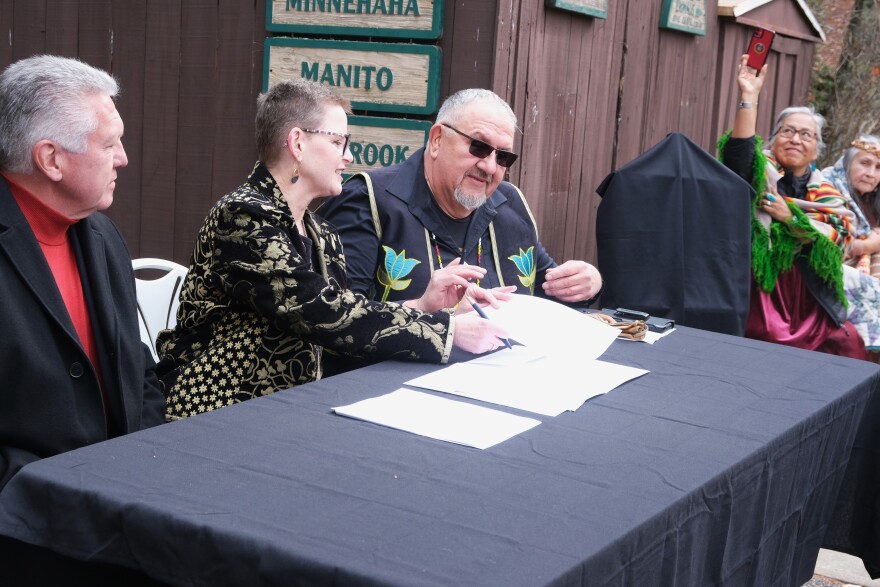For more than 80 years, the Franciscan Sisters of Perpetual Adoration ran an American Indian Boarding School in Odanah.
It was one of the boarding schools in Wisconsin that aimed to culturally assimilate Native Americans to Euro-American culture, often by force and abuse.
FSPA President Sister Sue Ernster said it’s been a journey to acknowledge their white privilege as they reckon with that history.
“This has been part of our awakening process in working with our truth and healing, and reconciling that we have been complicit in the harm caused by the system, as well as our part with the Native American boarding schools,” said Ernster.
As part of this healing process, the sisters recently sold the Marywood Franciscan Spirituality Center property in Arbor Vitae to the Lac du Flambeau Band of Lake Superior Chippewa Indians.

The tribe purchased property on Trout Lake for $30,000. That’s the price the FSPA bought it for in 1966 and just over 1% of its current market value.
“We knew that, since we love the land so much and believe in the interconnectedness, that the only people who would really appreciate as much as we and probably more are the Lac du Flambeau who have the same view of sacredness and the connectedness of creation,” said Ernster.
The Tribal Council, the FSPA, and community members celebrated the land transfer with a ceremony at the property on Friday.

The ceremony was a mix of long-standing and newer traditions like a water ceremony, drumming songs, an official signing of the transfer, and an exchanging of gifts.
“Years ago, my grandma was here, out here on that island, and so I'm thinking about her today and wondering how things are going to be,” said Tinker Schuman, who led the water ceremony. “This is one piece of land that came back to us, so I'm happy that way.”
Lac du Flambeau President John Johnson Sr. told the crowd this was more than just a ceremony or symbolic act.
“It is a living acknowledgement of our sovereignty, our responsibility to the land, and to the sacred relationship that connects our people to these ancestral territories,’ said Johnson.
The Ojibwe territory once spanned millions of acres across the Upper Great Lakes region.
Throughout the 1800s that land became ceded territory through various treaties.
Today, The Lac du Flambeau Reservation is less than 90,000 acres.
Johnson says the return of this land to the tribe helps address the wrongs of the past while bringing growth to the tribe’s future.
“We would like to see, as growing populations and the economy that Lac du Flambeau has to offer surrounding communities, that we grow together, and this is a good start growing together,” said Johnson.

Brittany Koteles hopes this is the first of many such land transfers.
She’s the co-founder and director of Land Justice Futures, which works with religious communities that are making decisions about the land and properties they own.
“The majority of religious communities of Catholic Sisters in the United States right now are aging,” said Koteles. “The average age is 82 years old, and so they're making a lot of decisions about the future of lands and properties and places that they've loved and they can no longer steward.”
Koteles says Land Justice Futures does a lot of education with religious groups about market transactions and private property and how transferring lands as a commitment of justice can be healing for both parties.
“What we're seeing today, it's not just about this property transferring in this way. This tells a story about what's possible, what we as humans are capable of,” said Koteles.
The tribe intends to use the property to house professionals, a major need among the housing affordable housing shortage. It will also be a place for spiritual events and healing education.







